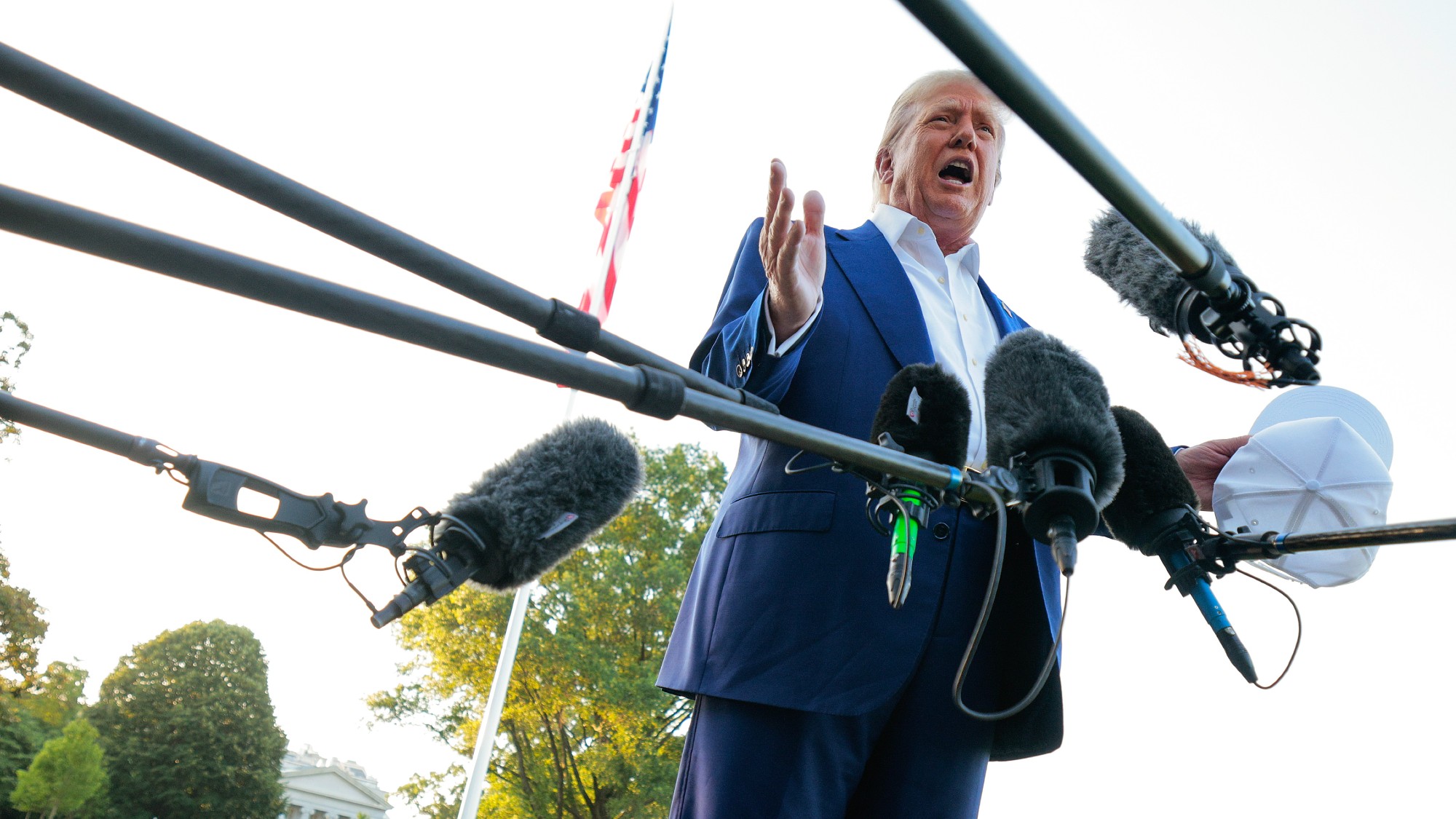Trump's strikes on Iran: a 'spectacular success'?
Military humiliations 'expose the brittleness' of Tehran's ageing regime, but risk reinforcing its commitment to its nuclear program

A free daily email with the biggest news stories of the day – and the best features from TheWeek.com
You are now subscribed
Your newsletter sign-up was successful
"He came, he bombed, he ended the war." That's how Donald Trump would sum up the events of the past week, said The Economist, but the reality was a little more complicated.
Last Saturday, 48 hours after giving Iran a two-week deadline, the US president launched the largest-ever strike by B-2 stealth bombers. Seven of the planes undertook a 37-hour surprise mission during which they dropped 14 bunker-buster bombs on Iran's nuclear facilities. Trump hailed the operation as a "spectacular military success", saying the bombs had "totally obliterated" the sites.
The next day, in what was seen as a token response, Iran fired 14 missiles at a US base in Qatar. All but one of the missiles were intercepted and there were no casualties. Hours later, Trump announced the end of what he called the "12-day war" between Iran and Israel. He subsequently rounded on both sides for continuing to fight, raging that "they don't know what the fuck they're doing", after which the fragile ceasefire appeared to hold.
The Week
Escape your echo chamber. Get the facts behind the news, plus analysis from multiple perspectives.

Sign up for The Week's Free Newsletters
From our morning news briefing to a weekly Good News Newsletter, get the best of The Week delivered directly to your inbox.
From our morning news briefing to a weekly Good News Newsletter, get the best of The Week delivered directly to your inbox.
Trump has made many terrible decisions during his time as president, said Eliot A. Cohen in The Atlantic, but he made the right call in bombing Iran. The regime simply can't be allowed to develop a nuclear weapon. Tehran is the world's leading sponsor of terrorism, and it might very well use such a weapon on Israel, which, as a former Iranian president repeatedly crowed, is "a one-bomb country".
Neutralising this problem, even if only temporarily, is a positive result. Iran's recent weak position created an opening for a strike on its nuclear facilities and the moment needed to be seized, agreed The Wall Street Journal. The risks were acceptable. Sure, Iran could try to close the Strait of Hormuz, through which a fifth of the world's oil supply passes, but only if it's willing to lose its main source of revenue and run the risk of the US sinking its entire navy. Trump has called Iran's bluff and helped create a "rare opportunity for a more peaceful Middle East".
If the ceasefire holds, it will mean that "this harrowing episode has concluded without triggering World War III, as some feared", said Michelle Goldberg in The New York Times. But the conflict hasn't actually achieved the desired result of ending Iran's nuclear programme. If anything, it may have increased that threat. Leaked US intelligence reports have suggested that America's bunker-buster bombs didn't knock out all of the centrifuges in the buried Fordow plant, and may have only set back Iran's nuclear programme by a few months.
Until recently, Iran was at least partly cooperating with the International Atomic Energy Agency. After Trump's reckless intervention, it will be even more determined to push secretly for a bomb. Iran still has a stockpile of 400kg of 60% enriched uranium, which even in its present state could be used as a crude radiological weapon, said David Ignatius in The Washington Post. US and Israeli sources say they know where it is, and we must hope they can find it and make it safe. "Otherwise, the fuse on the Iranian bomb is still lit."
A free daily email with the biggest news stories of the day – and the best features from TheWeek.com
It's quite possible that Iran could pick up the pieces and develop a bomb over the next couple of years, said Ilan Goldenberg in Foreign Affairs. US and Israeli intelligence will need to keep a close eye on it whatever happens. The dream scenario now is that Iranian reformists win a power struggle with the hardliners, and opt to ditch the country's nuclear ambitions for the sake of an easier life. But given how well entrenched the regime is, we're more likely to end up with a situation akin to the one in Iraq after the first Gulf War – in which Iran is left with a weakened, but "more radicalised", regime.
The only thing keeping Iran's despised theocrats in power, said Karim Sadjadpour in The New York Times, is the fact that they control a repressive apparatus that's "willing to kill en masse", whereas their more numerous opponents are "unarmed, unorganised and unwilling to die en masse". But that balance may change over the months ahead as the country comes to terms with recent events. Military humiliations "expose the brittleness" of ageing regimes. Witness the Soviet Union after its Afghan invasion, or Argentina's junta after the Falklands War.
In the absence of regime change – "or a definitive shift in mentality" – we can expect a return to conflict, said Gideon Rachman in the FT. With his talk of a "12-day war", Trump was suggesting that this could be "a reordering moment for the Middle East" akin to the Six-Day War of 1967, in which Israel defeated Egypt, Syria and Jordan. It's worth remembering, though, that six years after that conflict, "Israel was once again at war with Egypt and Syria".